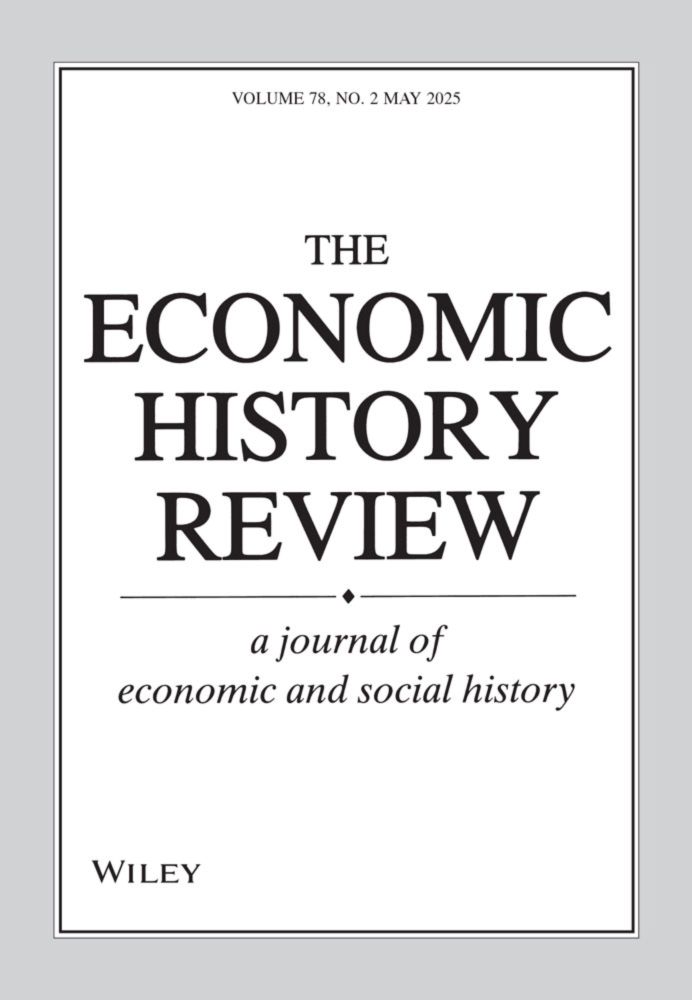
https://www.campop.geog.cam.ac.uk/
Follow our blog: 60 things you didn't know about family, marriage, work, and death since the middle ages. https://www.campop.geog.cam.ac.uk/blog
Christoph Hess shares his research uncovering the forgotten history of Chinese serfs who picked tea leaves on the mountainous slopes of East China - tea leaves that were then enjoyed in homes across Victorian England. www.campop.geog.cam.ac.uk/blog
Christoph Hess shares his research uncovering the forgotten history of Chinese serfs who picked tea leaves on the mountainous slopes of East China - tea leaves that were then enjoyed in homes across Victorian England. www.campop.geog.cam.ac.uk/blog
www.hist.cam.ac.uk/news/califor...
Emily Chung is a PhD student in History at @stjohnscollege.bsky.social @cam.ac.uk and @camunicampop.bsky.social, supervised by @pramospinto.bsky.social
www.hist.cam.ac.uk/news/califor...
Emily Chung is a PhD student in History at @stjohnscollege.bsky.social @cam.ac.uk and @camunicampop.bsky.social, supervised by @pramospinto.bsky.social

www.theguardian.com/education/20...

www.theguardian.com/education/20...
Emily Chung (@emvchung.bsky.social) (@camhistory.bsky.social) (@camunicampop.bsky.social) on 'Proximity and Segregation in Industrial Manchester'
#Industrialisation #Class #Social #Wealth 19thc 🗃️🏠
👉Read open access: www.cambridge.org/core/journal...

Emily Chung (@emvchung.bsky.social) (@camhistory.bsky.social) (@camunicampop.bsky.social) on 'Proximity and Segregation in Industrial Manchester'
#Industrialisation #Class #Social #Wealth 19thc 🗃️🏠
👉Read open access: www.cambridge.org/core/journal...
@stjohnscollege.bsky.social @camunicampop.bsky.social

@stjohnscollege.bsky.social @camunicampop.bsky.social

@camunicampop.bsky.social
www.campop.geog.cam.ac.uk/blog/2025/07...
@camunicampop.bsky.social
www.campop.geog.cam.ac.uk/blog/2025/07...
@camunicampop.bsky.social
www.campop.geog.cam.ac.uk/blog/2025/07...
@camunicampop.bsky.social
www.campop.geog.cam.ac.uk/blog/2025/07...
'The disappearance of malaria from Denmark, 1862–1900'.
By Mathias Mølbak Ingholt, Maarten van Wijhe, Lone Simonsen & Daniel Weinberger.
@camunicampop.bsky.social @roskildeuni.bsky.social @yaleemd.bsky.social
onlinelibrary.wiley.com/doi/10.1111/...

'The disappearance of malaria from Denmark, 1862–1900'.
By Mathias Mølbak Ingholt, Maarten van Wijhe, Lone Simonsen & Daniel Weinberger.
@camunicampop.bsky.social @roskildeuni.bsky.social @yaleemd.bsky.social
onlinelibrary.wiley.com/doi/10.1111/...
@camunicampop.bsky.social
www.campop.geog.cam.ac.uk/blog/2025/06...
@camunicampop.bsky.social
www.campop.geog.cam.ac.uk/blog/2025/06...
@camunicampop.bsky.social
www.campop.geog.cam.ac.uk/blog/2025/06...
@camunicampop.bsky.social
www.campop.geog.cam.ac.uk/blog/2025/06...
@camunicampop.bsky.social
www.campop.geog.cam.ac.uk/blog/2025/06...
@camunicampop.bsky.social
www.campop.geog.cam.ac.uk/blog/2025/06...
@camunicampop.bsky.social
www.campop.geog.cam.ac.uk/blog/2025/05...
@camunicampop.bsky.social
www.campop.geog.cam.ac.uk/blog/2025/05...
@camunicampop.bsky.social
www.campop.geog.cam.ac.uk/blog/2025/05...
@camunicampop.bsky.social
www.campop.geog.cam.ac.uk/blog/2025/05...

𝐆𝐫𝐚𝐧𝐮𝐥𝐚𝐫 𝐆𝐞𝐨𝐫𝐞𝐟𝐞𝐫𝐞𝐧𝐜𝐢𝐧𝐠 𝐢𝐧 𝐈𝐧𝐝𝐮𝐬𝐭𝐫𝐢𝐚𝐥 𝐌𝐚𝐧𝐜𝐡𝐞𝐬𝐭𝐞𝐫, 𝟏𝟖𝟓𝟏-𝟏𝟗𝟎𝟏
⬇️
www.campop.geog.cam.ac.uk/blog/
@camunicampop.bsky.social @amrcampop.bsky.social

www.campop.geog.cam.ac.uk/blog/
@camunicampop.bsky.social @amrcampop.bsky.social
Why did the transition to a coal-fuelled economy happen where it did, when it did? Paul Warde charts the history of a crucial shift that we now know has brought about dangerous consequences on a global scale.
www.campop.geog.cam.ac.uk/blog
#skystorians
Why did the transition to a coal-fuelled economy happen where it did, when it did? Paul Warde charts the history of a crucial shift that we now know has brought about dangerous consequences on a global scale.
www.campop.geog.cam.ac.uk/blog
#skystorians
@camunicampop.bsky.social
www.campop.geog.cam.ac.uk/blog/2025/04...
@camunicampop.bsky.social
www.campop.geog.cam.ac.uk/blog/2025/04...
@camunicampop.bsky.social
www.campop.geog.cam.ac.uk/blog/2025/04...
@camunicampop.bsky.social
www.campop.geog.cam.ac.uk/blog/2025/04...
Continuing our discussion of older adults in the English past, today's post asks: who looked after the elderly when they were no longer able to work and earn? Did they rely on family, or could they turn to the community for support?
www.campop.geog.cam.ac.uk/blog
#skystorians
Continuing our discussion of older adults in the English past, today's post asks: who looked after the elderly when they were no longer able to work and earn? Did they rely on family, or could they turn to the community for support?
www.campop.geog.cam.ac.uk/blog
#skystorians
@camunicampop.bsky.social
www.campop.geog.cam.ac.uk/blog/2025/04...
@camunicampop.bsky.social
www.campop.geog.cam.ac.uk/blog/2025/04...
What relationship did ordinary peasants have with the institutions of the law in medieval England? Find out in our latest post from Chris Briggs:
www.campop.geog.cam.ac.uk/blog
#skystorians #medieval
What relationship did ordinary peasants have with the institutions of the law in medieval England? Find out in our latest post from Chris Briggs:
www.campop.geog.cam.ac.uk/blog
#skystorians #medieval

